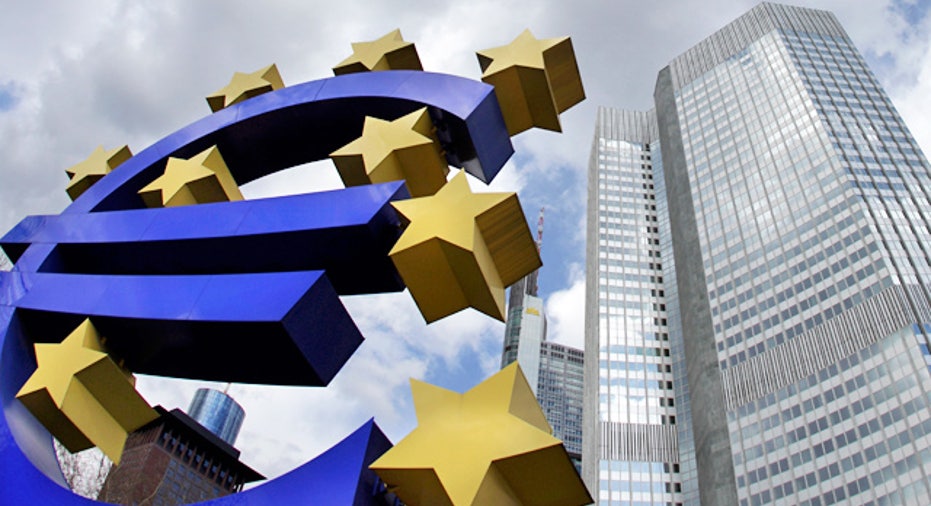Fitch: ECB Needs to Act to Prevent Euro Collapse

The European Central Bank should ramp up its buying of troubled euro zone debt to support Italy and prevent a "cataclysmic" collapse of the euro, David Riley, the head of sovereign ratings for Fitch, said on Wednesday.
Speaking to investors as part of a European roadshow, Riley said the collapse of the euro would be disastrous for the global economy, and while it is not Fitch's baseline scenario, it could happen if Italy did not find a way of its debt problems.
"The end of the euro would be cataclysmic. The euro is a reserve currency," Riley said. "What would that do in terms of financial and political stability?"
"It is hard to believe the euro will survive if Italy does not make it through," he said, adding that while many saw Italy as too politically and economically important to be allowed to fail, "one might also argue that it is too big to rescue."
He also urged the European Central Bank to abandon its current reluctance to scaling up its purchases of troubled euro zone debt such as Italy's and drop its resistance to the bloc's bailout fund, the EFSF, borrowing directly from it.
"Can the euro be saved without more active engagement from the ECB? Quite frankly we think no," Riley said, adding that the bank had plenty of scope to expand its balance sheet with unleashing a wave of inflation across the euro zone.
"Why not have the ECB come out and say 'We are going to cap interest rates', say 'We are not going to allow interest rates to exceed 7 percent' or whatever level they see is the limit?.. Why not turn the EFSF into a bank so it can borrow from the ECB so it doesn't have to go to the market?"
GREECE THE JOKER IN THE PACK
Fitch has warned that the economic outlook for the euro zone has darkened further in recent months, but it has said it does not expect to strip France of its triple-A rating for this year at least. By contrast, Standard & Poor's has singled out France for a possible two-notch cut from its top rating.
Still, Riley warned that the euro zone's second-biggest economy was in a precarious position as the crisis rumbled on.
"France is the weakest AAA country in the euro zone," he said, adding it had the additional burden of being the main country alongside Germany underpinning the euro zone's bailout fund.
Greece, meanwhile, remained a major threat for the euro zone.
Last year's move to force investors to take losses on their Greek bonds had destroyed the pre-crisis assumption that no euro zone country would default, while the current debate on Greece potentionally leaving the euro was forcing investors to fundamentally rethink their view of the single currency.
"Arguably Greece leaving euro could be the beginning of the end for the euro," Riley said. "Greece is still the joker in the pack. It still has the potential to plunge the euro zone into crisis."
However he said the internal trauma leaving the euro would create would deter Athens from reverting back to the Drachma.
"We don't think Greece will leave the euro. The cost benefit analysis doesn't add up," Riley said. (Editing by Hugh Lawson)



















